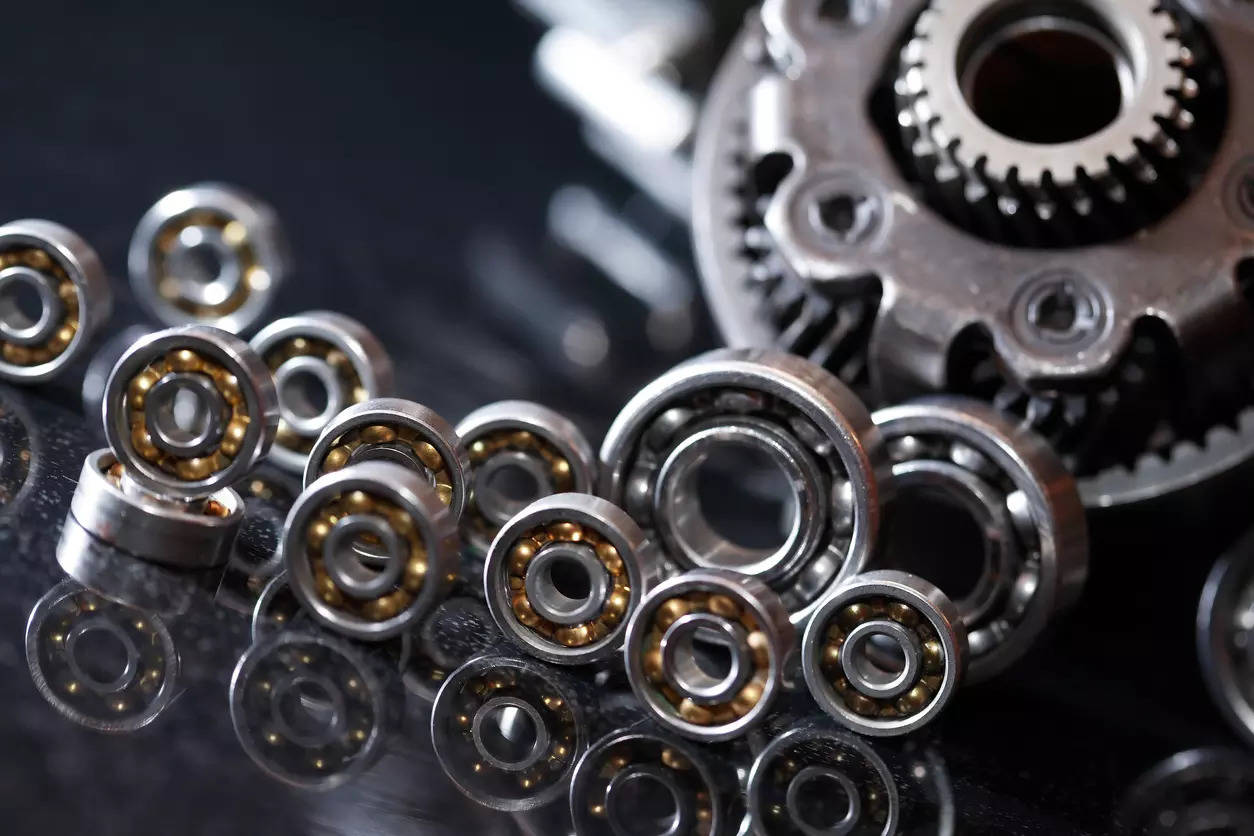
NRB Bearings Limited (NRB Bearings) is accelerating its sustainability journey by exploring innovative materials and advanced technologies to create environmentally friendly bearing solutions. As part of its commitment to sustainability, the company is actively exploring the use of bio-derived plastics, castor oil-based materials for bearing cages, and hybrid bearings with ceramic balls, which offer enhanced performance while reducing environmental impact.Speaking at the Bharat Mobility Global Expo 2025 (The Auto Expo Components Show), Dr. Saravanan Muthiah, Chief Technology Officer, Product Technology and R&D at NRB Bearings Limited, emphasizes the company’s strategic focus on integrating alternative, greener materials into its product portfolio. He states, “We are fully focused on not just lightweighting but also its broader impact, such as inertia reduction and friction optimisation, which ultimately contribute to lower noise levels.”
Sustainable material innovation
NRB Bearings is evaluating the potential of bio-derived plastics as a viable alternative to conventional polymers used in bearing components. These materials, derived from renewable sources, align with the company’s goal of reducing dependence on fossil fuels and lowering carbon emissions across its value chain. Additionally, castor oil-based materials for bearing cages present an eco-friendly solution that offers high strength, durability, and resistance to harsh operating conditions, making them ideal for next-generation automotive applications.
“We have derived cages from castor oil. The plastic reduction can lead to CO2 reduction to the extent of 91%. While the cost is a bit on the higher side, say around 50% higher on the material, however, once there are volumes then it will be competitive,” Dr. Muthiah reflects.
Highlighting that natural materials have challenges in terms of maintaining the consistency, Dr. Muthiah says, “We are currently sourcing it from Germany, they can make in India if the volumes support.”
Hybrid Bearings for enhanced efficiency
The company’s exploration of hybrid bearings with ceramic balls represents a significant step towards improving energy efficiency and extending product lifespan. Ceramic balls offer several advantages, including reduced weight, lower friction, and higher corrosion resistance, making them a sustainable choice for high-performance applications such as electric vehicles (EVs).
“Instead of steel balls, you can put ceramic balls which helps in reducing the inertia apart from providing insulation during accidental discharge. It also gives you benefits with regards to friction and performance in high temperature application such as EVs. We are also looking at inner and outer ring coated with ceramic that we are doing in-house. While the ceramic balls are currently imported on trial basis,” adds Dr. Muthiah.
The company also uses plastic for cages that are glass reinforced. “We use what is called as PA66 and PA6 with glass reinforced that is a typical composition.”
“We recently designed bearings wherein at the bearing level, there has been 30-35% friction reduction and our tests show fuel economy of 2-2.5% in two-wheelers (2Ws),” reflects Dr. Muthiah, adding that the company is continuously exploring alternate materials and is an advocate of recycled and sustainable materials.
Commitment to a sustainable future with green, recycled materials
NRB Bearings is embedding sustainability into its core operations by embracing circular economy principles, investing in eco-conscious product development, and adopting greener manufacturing practices. The company aims to strike a balance between performance, cost-effectiveness, and environmental responsibility, positioning itself as a key enabler in the global transition towards sustainable mobility solutions.
“We use very heavily recycled steel. The steel that we import is almost 70% plus coming from scrap and is not virgin steel. Similarly, for our cages, we have tested regrind plastic up to 50% – so basically when you do moulding, there are some wastages those can be reground and again used, and it works,” shares Dr. Muthiah.
He further adds, “We are also looking at green steel that are produced by steel makers using renewable resources such as solar, wind, etc.” Even at NRB Bearings manufacturing plants, “We are looking at solar for bulk of our energy consumption. We are in advance stage of green power usage of more than 60%.”
Asked about the changes that one can expect in bearings to suit flex fuel vehicles, he says, “Typically, flex fuel with 5% ethanol is fine but beyond that say pure ethanol led fuel then we have to look at the compatibility of things with rubber.” Like in seals, “we will have to ensure compatibility with pure ethanol.”
On hydrogen applications, he notes, “Steel has the tendency to become brittle, it is called embrittlement because hydrogen molecules are so small that they can pass through it or get entrapped into steel, causing brittleness over time. Stainless steel may still work for hydrogen, but challenges need to be addressed.”
“However, all of this validate only if ethanol or hydrogen directly comes into contact with the bearing. Typically, you would not have a scenario where this happens, but if it does, these challenges must be addressed.”
















